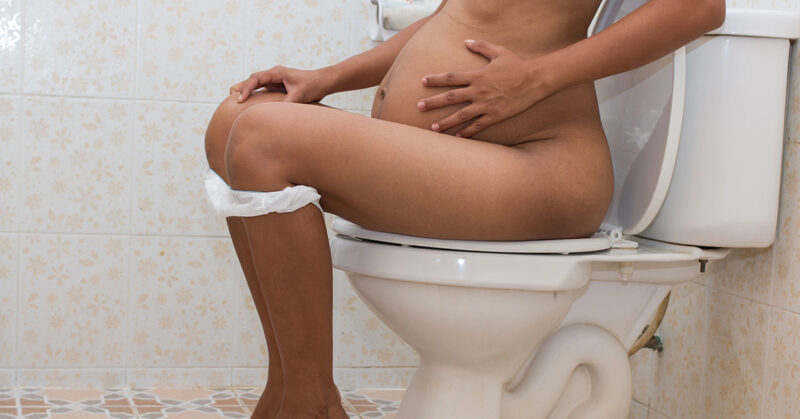
Hemorrhoids are a common concern during pregnancy, but they can also develop or worsen during labor. The intense pressure and straining involved in childbirth can lead to swollen veins in the rectal area, resulting in hemorrhoids that cause discomfort or pain. Many expectant mothers wonder if it’s possible to prevent hemorrhoids during labor. While there’s no guaranteed way to completely avoid them, there are strategies you can adopt to minimize the risk.
- Maintain a Healthy Diet and Stay Hydrated:
A diet rich in fiber can help keep your digestive system running smoothly, reducing the likelihood of constipation—a major contributor to hemorrhoids. Eating plenty of fruits, vegetables, and whole grains, along with drinking ample water, helps soften stools and makes bowel movements easier. This reduces the strain on your rectal area, both before and during labor.
- Practice Regular Exercise:
Gentle exercises, like walking, swimming, or prenatal yoga, can improve circulation and help prevent constipation. Regular physical activity also strengthens your pelvic floor muscles, which can support your body during labor and reduce the pressure on your rectal veins.
- Avoid Prolonged Sitting or Standing:
Sitting or standing for long periods can increase pressure on the rectal veins, leading to hemorrhoids. If your routine involves prolonged sitting or standing, try to take regular breaks to move around and change positions. Using a pregnancy pillow or cushion when sitting can also help alleviate pressure on your lower body.
- Focus on Proper Pushing Techniques:
When it comes to labor itself, how you push can make a difference in preventing hemorrhoids. Instead of pushing with maximum force, focus on controlled, gradual pushing when instructed by your healthcare provider. Listen to your body, and try to avoid holding your breath while pushing, as this can increase pressure in the rectal area.
- Consider a Warm Compress:
Applying a warm compress to the perineal area during labor can help relax the muscles and reduce the strain on your rectal veins. This technique, often used by healthcare providers during the pushing stage, can potentially lower the risk of developing hemorrhoids.
- Discuss Epidural Options:
For some women, opting for an epidural during labor can reduce the need for intense pushing, which may help lower the risk of hemorrhoids. However, it’s important to discuss the pros and cons of an epidural with your healthcare provider to determine if it’s the right choice for you.
- Stay Positive and Relaxed:
Stress and anxiety can contribute to muscle tension, including in the pelvic area. Practicing relaxation techniques, such as deep breathing, visualization, or meditation, can help you stay calm during labor. A relaxed state of mind may help reduce the likelihood of excessive straining and, consequently, hemorrhoids.
Is Complete Prevention Possible?
While these strategies can certainly help reduce the risk of developing hemorrhoids during labor, it’s important to remember that childbirth is an intense process, and some factors are beyond your control. The physical demands of labor can sometimes lead to hemorrhoids despite your best efforts. However, by preparing your body through diet, exercise, and proper techniques, you can minimize the chances and manage any issues that arise more effectively.
Preventing hemorrhoids during labor may not be entirely possible, but taking proactive steps can significantly reduce your risk. Maintaining a healthy lifestyle, practicing good pushing techniques, and staying relaxed can all contribute to a smoother labor experience with fewer complications. As always, discuss any concerns or strategies with your healthcare provider, who can offer personalized advice and support tailored to your pregnancy journey.

